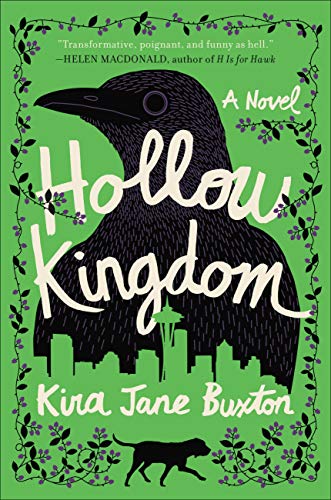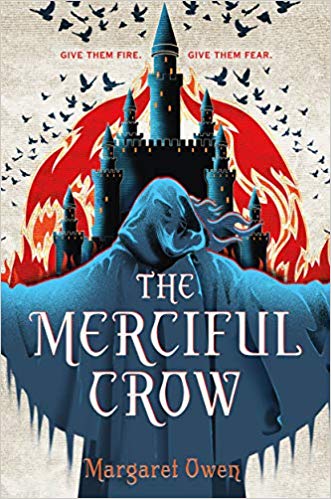A kingdom of crows
Our massive field of Democratic presidential candidates features some real generational talents — the kind of politicians who could, in the proper context, redefine America for a century. But what this field lacks is someone who is especially good at tying the political to the personal.
Before you email me some clips of, say, Elizabeth Warren talking about what her plans can do to help America's forgotten middle class, let me clarify that statement. What I mean is that no candidate is especially gifted at storytelling — they can talk about their policies, and they can express in grand language what those policies might mean for Americans in the long run. But they don't often tie their policies down to individual Americans.
As loathsome as I find Bill Clinton to be, the man excelled at storytelling about people he met on the campaign, and how his policies would directly benefit those people. He used personal examples to explain his policies and his positions, and he used those same examples to spell out what he would do for America. No other politician — not even Obama, who I consider to be superior to Clinton in every other imaginable way — had that same gift.
It's easy in these partisan times to forget that politics affects the real world. It's not just about a series of talking points, or internet fights — politics answers the most important question for mammals: the question of how you put food on the table.
Sarah Smarsh's memoir Heartland lives in that perfect center of the Venn diagram between politics, economics, and the real world. Smarsh, who reads tonight at Elliott Bay Book Company, uses her own hardscrabble upbringing to identify the problem with political leadership in this country, and how the American economy has failed all but the wealthiest among us.
This is the book you wished Hillbilly Elegy could have been. Smarsh remembers her poor upbringing with a delicious, wistful ache. The book is not dipped in nostalgia, and it's not playing up the poorest Americans as pure-blooded saints, either. It's a canny observation of the way that macro-level systems can affect the tiniest portions of our lives — often without our even noticing.
In a passage of Heartland that has haunted me from my first reading, Smarsh uses a rare burst of negativity from her beloved grandmother to explain the terrible ways that poor people self-police themselves out of anything better:
Grandma Betty, who had hated school and distrusted the institution in general, was less sure about this turn of events. At the farm over Christmas break, when I told some family members visiting from Denver that I'd been placed in the gifted program, she uncharacteristically snapped at me.
"Sarah, don't brag," she said, and my face went hot and red.
We were in a world, I see now, where going on welfare as a teenage mom or receiving accolades for your academic work had the same outcome: admonishment to keep you in your place. One was an offense to taxpayers who were supposedly pulling your weight; the other, an offense to grandmothers who had left school in tenth grade and were averse to anyone thinking herself too good for where she came from.
(It's worth noting here, by the way, that Smarsh herself reads the audio book version of Heartland, and she's a note-perfect reader of her own work. Hearing Smarsh's twang as she reflects on some golden summer memories is deeply affecting, and hearing the venom as she rips the Reagan tax cuts up one side and down the other is almost as beautiful, in its own way.)
In Heartland, Smarsh explains where we went wrong and how we let it happen. She identifies cultural, economic, and systemic issues that have left Americans worse off than at any point in the second half of the 20th century. She also takes the time to reflect on the fact that, as bad as her poor white family had it in the heartland, populations of color suffered even worse fates.
What does it mean that no presidential candidate is as good as Smarsh at explaining the real-world ramifications of all these speeches and policies and positions? Is it possible that we've waited too long to resolve this 40-year widening gap between the haves and the have-nots? Have even the smartest, most empathetic candidates found themselves removed from the working class for too long? Are they incapable of seeing the very people they most need to help?
I've been thinking a lot lately about the ascension of the crow as a literary symbol, and the role Seattle plays in that new role. Two local authors have placed crows at the center of their stories. Kira Jane Buxton's Hollow Kingdom is a dystopian novel about a crow who witnesses a zombie outbreak in Seattle. And Margaret Owen's fantasy novel The Merciful Crow is about a young woman whose caste — she is a Crow — is at the bottom of the societal pecking order.
Of course, much research has famously been done here in Seattle on the intelligence of crows: they recognize human faces, and they hold grudges, and they can use simple tools. They aren't cockroaches, or any other animal that can survive the apocalypse through sheer dimwitted willpower. No, crows seem smart enough to survive anything while still somehow understanding that they've got the short end of the stick. In a world where humans dine like kings, the crows get to pick at our scraps. Can you blame them for holding a grudge?
S.T., the narrator of most of Hollow Kingdom, even has a wry sense of humor about the apocalypse and his place in it. "Crows are harbingers of death and omens, good and bad...Midnight-winged tricksters associated with mystery, the occult, the unknown. The Netherworld, wherever that is — Portland?" And this dedication to laughter makes Hollow Kingdom a fun book to read, even as all of Seattle falls to pieces in its pages. We learn that squirrels are "five-star sexual deviants" and we come to realize how impossibly self-centered house cats really are.
The Crow caste in The Merciful Crow is lighter on the humor and heavier on the death and omens of it all. Fie, the protagonist, is a young woman on the verge of a leadership position among the Crows. Her future consists of a life on the fringes of polite society. Crows are tasked with ferrying the corpses of royalty through the process of burial. They're the undertakers, picking at the bones of civilization in exchange for scraps.
Kingdom is a very funny and deeply affecting account of a world as it falls apart. Merciful is the story of a people who have become so estranged from society that they live outside of it. In other words, though neither book is non-fiction, they're both about the world that Smarsh is writing about in Heartland. After 40 years of economic robbery — four decades of the wealthiest Americans taking it all while the rest of us languish beneath ever-decreasing paychecks — crows, and not bald eagles, have become America's national bird. We're smart, we're wiry, we're jaded. And we're fighting over a dwindling pile of scraps.
Is it too late, then, to make a change? Is our fiction destined to get more and more hopeless? One day, in the middle of a spate of novels about cockroaches, are we going to think back wistfully on the days when crows were our most relatable protagonists?
I hope not. And with enough smart and compassionate writers like Smarsh, we can avert the crowpocalypse from unfolding. Because Heartland's greatest power — and in fact it shares this power with both Kingdom and Merciful — is its hope. Smarsh expects more. This is the end of the passage in which Smarsh's grandma chastises her about bragging about being in a gifted and talented program:
Grandma was right: I did think I was too good for the environment I'd been born into. But I thought she was, too. I thought everyone was.
And so we all are.
Paul is a co-founder of The Seattle Review of Books. He has written for The Progressive, Newsweek, Re/Code, the Utne Reader, the Los Angeles Times, the Seattle Times, the New York Observer, and many North American alternative weeklies. Paul has worked in the book business for two decades, starting as a bookseller (originally at Borders Books and Music, then at Boston’s grand old Brattle Bookshop and Seattle’s own Elliott Bay Book Company) and then becoming a literary critic. Formerly the books editor for the Stranger, Paul is now a fellow at Civic Ventures, a public policy incubator based out of Seattle.
Follow Paul Constant on Twitter: @paulconstant
Other recent reviews
Talk about the weather
-
Interpretative Guide to Western-Northwest Weather Forecasts
March 27, 2018
72 pages
Provided by publisherBuy on IndieBound
The man show
-
The Sexiest Man Alive
October 01, 2018
72 pages
Provided by publisherBuy online
Accidentally honest
-
The Shame of Losing
October 01, 2018
264 pages
Provided by authorBuy on IndieBound


